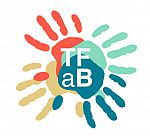TFaB: Twins, Families and Behaviour
Please click here to see our latest newsletter!
Please click here to see Newsletter No.2
Please click here to see Newsletter No.1
Bonamy Oliver & Alison Pike
Around 300 families with twins born in 2009/2010 across the UK are involved in this behavioural genetic study, which explores children’s behaviour and family relationships. Our participating parents kindly completed an initial questionnaire to help us get to know more about our families, including demographic information, twin zygosity, parenting and child behaviour. We then asked parents some additional questions over the phone about significant life events, parents' own personality, the twin relationship, and their relationship with each of the children. More recently we have asked mums and dads to play a game and interact naturally with each of their twins that we have recorded through the wonders of technology - Skype! Since then, we have sent parents a follow-up questionnaire, with another one coming to parents over the school holidays.
With the help of our families, we are learning lots about family life with young twins!
Please contact us to hear more!
SiBS: The Sisters and Brothers Study
Supported by grants from the Joseph Rowntree Foundation and the Institute of Psychiatry
Alison Pike & Judy Dunn
This study paints a portrait of ‘ordinary’ family relationships among a sample of parents and children aged 4-8 drawn from the local Sussex community. The study involved 173 families with two children – 55 lone-mother and 118 two-parent families. The study was underpinned by a view of the family as a ‘system’ and this shaped both the measures used and analysis. We recorded the perspective of each family member using the accounts to explore how family members get on together, the factors both within and outside the home that affect family life, the role of family relationships in children’s well-being, and differences between lone-mother and two-parent households. 106 of the families were contacted 4-5 years later, and similar assessments made of family life with 8-13 year-old children.
As well as yielding several academic publications, findings from the first wave of data collection are summarized in a JRF newsletter (www.jrf.org.uk/sites/files/jrf/0436.pdf).
Although now complete, students are still busy coding videotaped family interactions from the project, providing opportunities for continuing novel uses of the data.
TEDS Stories: analysing children's written narratives
Supported by a grant from the Medical Research Council
Bonamy Oliver
As part of the Twins Early Development Study, when they were 9 years old the children were asked to write a story of their choice from pictorial stimuli. Some 4000 stories (from approximately 2000 pairs of twins) were written and are currently being coded for various story themes including violent, hostile and prosocial themes. These data will be linked to other data collected as part of TEDS (e.g., parenting, risk factors, conduct problems, reactive/proactive aggression, friendships, anxiety, depression, school achievement, gender role attitudes).



